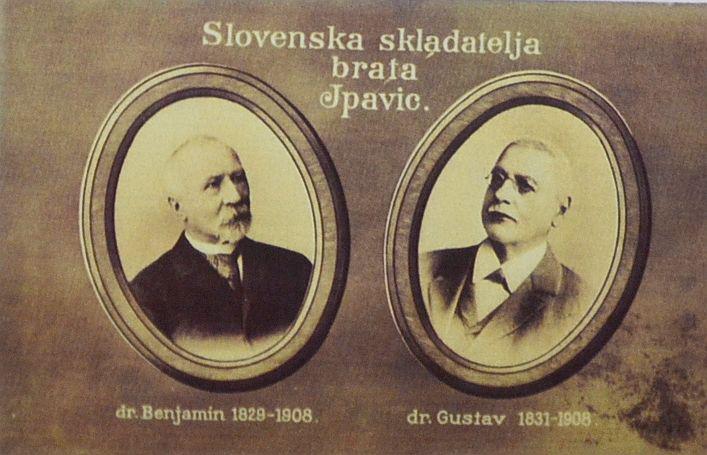Slovenian history is rich with remarkable individuals, many of whom made lasting contributions in the fields of medicine, music, and politics. One family, however, stands out with its remarkable legacy; its members had a profound impact on the practice of medicine in the Slovenian Lands, composed songs that are still recognized today, and helped to awaken Slovenian national consciousness.
The exact origin of the Ipavec family is unclear. According to some sources, the family had its roots in the Vipava Valley – the word "Vipavec" refers to a resident in the area. The earliest official records, however, place the Ipavec family in the Bela Krajina region in southern Slovenia, near the border with Croatia. And it's in Bela Krajina where Jurij Ipavec, the patriarch of the dynasty, was born; he gained prominence as a famed military surgeon in the 17th century.
His son Matija Ipavec left his home region and moved to the town of Šentjur, where the Ipavec family became well-established. He was a wealthy surgeon and may have even corresponded with Benjamin Franklin, a prominent inventor and one of the founding fathers of the United States.
Matija's brother Franc was also a doctor, and became known as a healer of the blind; he was among the first to operate cataracts. On the suggestion of his wife Katarina, he also pioneered the use of musical therapy in medicine. This passion for music would mark several successive generations of the family.
His son Alojz Ipavec was also influenced by his musical mother and became a passionate musician; he made a name for himself as a composer of romantic waltzes.
Gustav Ipavec composed several patriotic 19th century songs, including "Slovenec sem" – "I am Slovenian" – which is still commonly sung to this day. An active participant in the Slovenian national awakening, he also helped to establish the newspaper Slovenski Narod, which quickly became an influential voice of Slovenians in Austria-Hungary. In addition to being a prominent member of Slovenska Matica, an organization that advocated greater Slovenian autonomy, he followed the family tradition and had a full-time career as an eye doctor.
Benjamin Ipavec was more well-known for being a pioneer of X-ray imaging and a leading gynecologist known for his innovative surgical techniques, as well as a poet and a composer of patriotic songs. He put "The Toast" - now the Slovenian national anthem - to music and helped to transform his native Šentjur into a center of Slovenian political consciousness. After moving to the Austrian town of Graz, he ran the Slovenian choir in the area.
Josip Ipavec took the family name into the 20th century, working both as a composer and a doctor. He died in 1921, becoming the last member of the family to achieve national prominence.
Perhaps Slovenia's most famous dynasty of all time, the Ipavec family had no equal at a time when the Slovenian nation was being rocked by significant social and political change. Its prominent members combined their passions for science and music, while instilling a sense of pride in a people trying to find its place in a changing world. They left a deep impact on Slovenian identity - as well as a legacy of achievement that lives on to this day.
Jaka Bartolj


































































